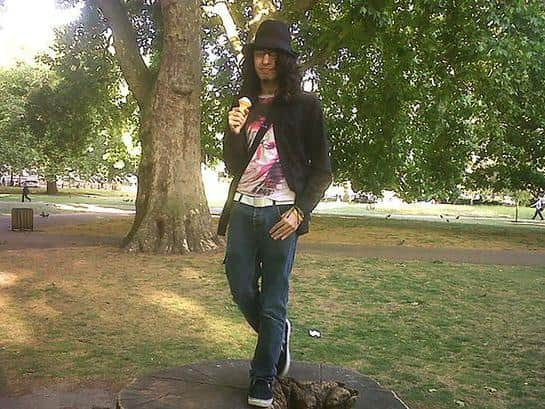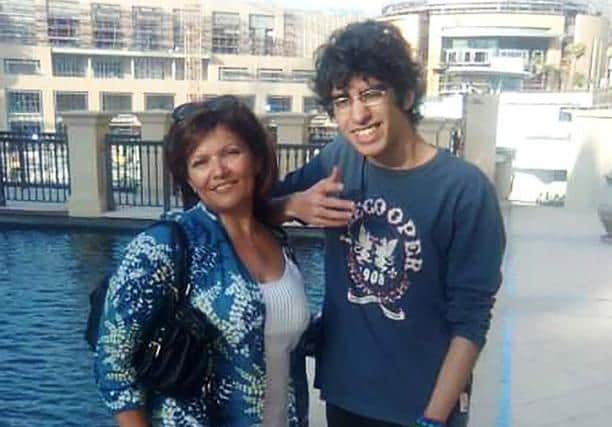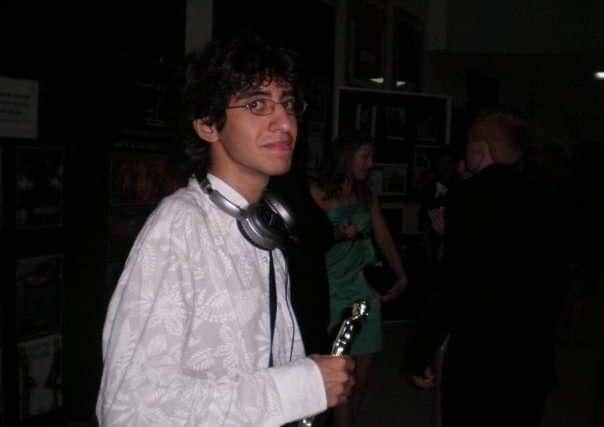Shy young autistic man lay dead in his flat for nine months before anyone noticed, inquest hears
and live on Freeview channel 276
Roy, who had changed his name from Ayman Habayeb, had been under the care of Milton Keynes Council's social services for six years as a vulnerable adult.
His body was found "mummified" after laying in his Ashlands flat for nine months, the coroner heard.
Advertisement
Advertisement
Police found a 40-page long suicide note written by him along with a pile of letters from DWP, on which he had scrawled "distressed" comments in red ink.


The inquest heard the polite and well-mannered 28-year-old felt his comfortable world was going to disappear after it was decided his government benefits should be stopped because he refused to attend a fit-to-work assessment in September 2018.
He had even been admitted to city's Campbell Centre, where mental health doctors successfully battled to get his benefits restored, a coroner was told.
But after returning home, he was once again informed by DWP that would need to attend a fit-to-work assessment - causing him to feel stress and pressure.
Advertisement
Advertisement
He asked his GP surgery for a note which would confirm he was anxious about being in open spaces, meaning he would not have to go into the city centre to attend his appointment, the inquest heard.


Although that letter was provided to him, Mr Curtis was seen after November 2018. Nine months later, on August 21 last year, his landlords broke into his flat with a High Court bailiff on to evict him because £2,767 was owed in rent.
Ian Wright, a bailiff who entered the Lexham Road flat.told he found Roy's body in a cupboard in the bedroom.
He said: "It was clear and obvious that the male was deceased and I stood and looked at the male for a few seconds before turning around and walking straight out of the address.
Advertisement
Advertisement
"The male had clearly been deceased for some time and it appeared that he had died from suicide."


Police officers were called to the scene where they found Roy. A post mortem examination described the body as being in a state of "advanced mummification" and revealed there was no blood made available for a toxicological examination.
Detective Constable Lucy Jareth said: "In a folder under the table in the lounge was a number of letters which had red handwriting across them. The words across the letters were as if the author was distressed about the situation that the benefits and allowances had been stopped."
Dr David Marchevsky told how Mr Curtis, who had a mild diagnosis of autism spectrum disorder Asperger's syndrome, had been sectioned for five days in 2012 at the Campbell Centre.
Advertisement
Advertisement
In September 2018, he returned after sending out the suicide email and Dr Marchevsky said the team had helped Mr Curtis get his benefits reinstated.


The doctor said: "He was very polite, well-mannered, very pleasant and a likeable person. He was not particularly happy to be admitted.
"His concerns were nothing to do with medication or psychological treatment, they were more practical things. He was quite angry that his life had been changed and turned because of the stopping of his benefits and the reason that he decided to commit suicide was because all his life he was very comfortable with the receipt of benefits and the things he was doing at the time.
"He had a group of friends he was in contact with, particularly electronically. All that was to disappear, so his world was to disappear too."
Advertisement
Advertisement
Dr Marchevsky said that doctors managed to get Roy's benefits restored and payments backdated while he was still a patient, after which he was happy to return home.
The inquest heard how the deceased had been discharged in October 2018 from the Campbell Centre to the Home Treatment Team, which in turn discharged him to his local GP centre.
However, it was later discovered that Roy had again been contacted by the benefits agency and asked to attend a fit-to-work assessment once again.
Dr Marchevesky, who only found out about the benefit agency's new request after Roy's death, said: "I did not anticipate that the benefits agency were going to do this, particularly so quickly and I did not know until I learned about his death.
Advertisement
Advertisement
"They were told the reasons why he had been admitted, all that information was given to them. If I had envisaged that in November or December they were going to do that, probably we would have had a discussion about, 'please do not do this, why are you going to do that?'"
A referral note from a community nurse with the Acute Home Treatment Team said: "Main triggers and stresses were his benefits, which were stopped. This has now been reinstated and payment backdated.
"RC (Roy Curtis) expresses stress and pressure that he was placed under the employment activity, meaning he will need to attend the job centre. He feels this is a lot of pressure and he feels he should not be asked to work. He wants to discuss this with his GP."
Dr Romi Babatunde told the inquest that Roy had visited a GP at the Grove Surgery on November 15 2018 and revealed his worries about the looming fit-to-work assessment.
Advertisement
Advertisement
The doctor said: "What he wanted was a letter from us stating that he could not attend another assessment. He had got a letter from the department saying that he had to come to the city centre and one of Roy's symptoms was anxiety in open spaces."
A letter was written by his GP but the inquest heard nobody from the surgery ever contacted the man, who was not on any medication, to check on his condition.
Dr Babatunde added: "What was recorded was that the GP will follow up as required and that Roy will contact his GP if he had any problems."
Following Mr Roy's death, a safeguarding adults review had been carried out by multiple agencies in Milton Keynes, including the council which was legally represented at the inquest.
Advertisement
Advertisement
Tom Osborne, senior coroner for Milton Keynes, said: "The review highlights the onus was very much on Roy to self-refer himself if he had problems."
The coroner questioned whether Mr Curtis was "someone who was going to remain high risk, particularly if his rights to benefits were either withdrawn or questioned in the future."
Mr Osborne said: "Rather than go through that process again, he would prefer to die."
Fuad Habayeb, Mr Curtis' father and a chartered engineer who had lived in Dubai with his son from 2005 to 2009, joined the inquest electronically via Microsoft Teams .
Advertisement
Advertisement
Mr Habayeb told the GP: You could have saved his life, you could have saved this young man. I hope you can live with your conscience."
After the coroner tried to intervene, Mr Habayeb added: "I am sorry, I cannot be calm just like anyone else. For him [the GP] it is just another day, another guy."
The inquest, expected to last two days, continues. MK Council will be legally represented.
The Citizen carried out investigative coverage into Roy's death at the time his body was discovered. Read our initial story here.
Advertisement
Advertisement
Suicide is preventable and support is available, such as Samaritans’ helpline. When life is difficult, Samaritans are there – day or night, 365 days a year. You can call them for free on 116 123, email them at [email protected], or visit their website to find your nearest branch.